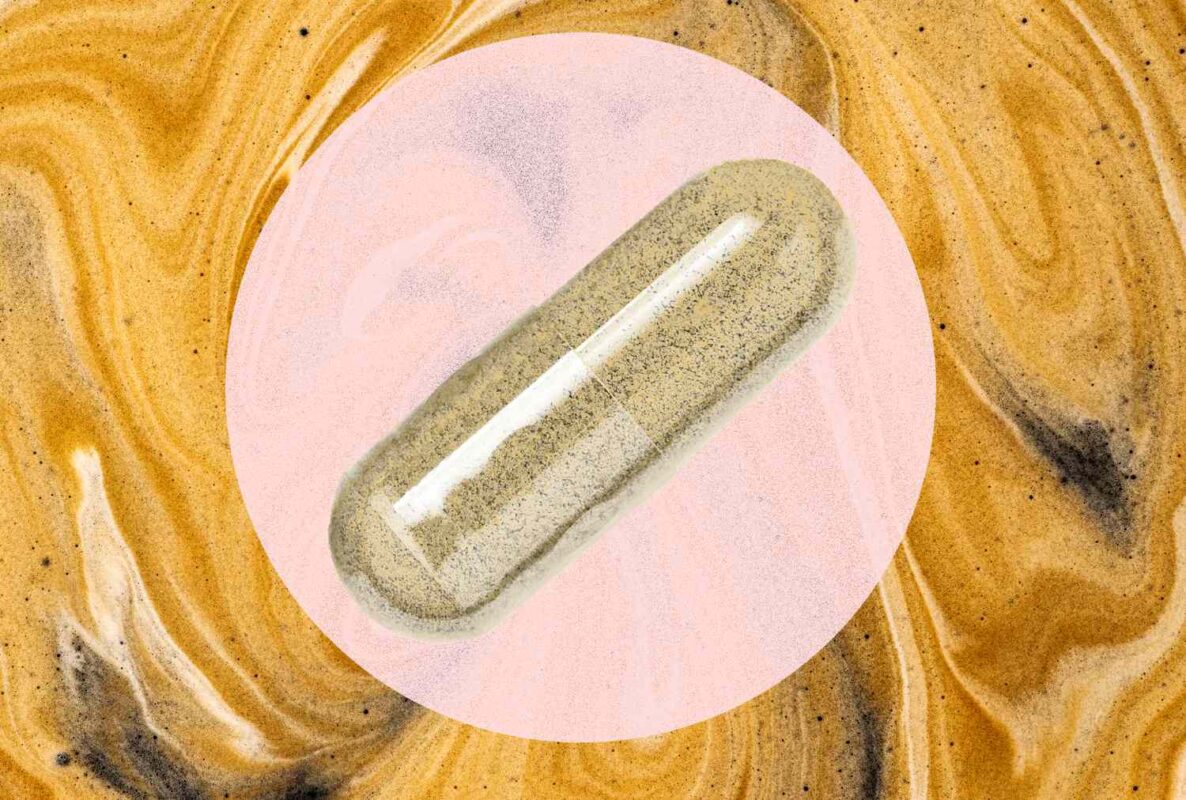Blog
5 Supplements to Avoid If You Have Insulin Resistance

- Insulin resistance is when your cells begin to lose their ability to use insulin efficiently.
- Forty percent of young and middle-aged U.S. adults have this condition.
- Many supplements sold to improve insulin resistance may make it worse or be dangerous.
Four out of 10 U.S. adults ages 18 to 44 have insulin resistance—and most don’t even know it. But what is insulin resistance, anyway? This condition is when your cells begin to develop a tolerance to insulin, the hormone needed to push glucose into your cells for energy. When insulin doesn’t work as well as it used to, your pancreas responds by trying to make more of it. For a while, your body can compensate for this additional need until the pancreas struggles to produce the insulin required to keep cells energized. However, if it continues for long enough, it can lead to prediabetes and eventually type 2 diabetes. What’s more, if you have type 2 diabetes, you already have insulin resistance.
While it’s not clear exactly why insulin resistance happens, genetics and age are believed to play a role. It has also been linked to overweight and obesity, high blood pressure and a sedentary lifestyle. Managing insulin resistance requires changes in lifestyle, especially increasing physical activity to “use up” blood sugar. Recommended strategies may also include weight loss to reach a healthy body weight, which helps your body use its insulin effectively.
If you have insulin resistance—or are worried about developing it—you might be considering supplements that claim to help manage this condition. But are they really effective? When it comes to many of them, the answer is no. Here are five supplements experts say you’re better off avoiding.
1. St. John’s Wort
St. John’s wort is a shrub that’s used as a supplement to treat depression and symptoms of menopause. However, it may pose problems for people with insulin resistance. Although no medications are approved to specifically treat insulin resistance, you may be on medications like metformin, sulfonylureas and thiazolidinediones if you have diabetes. However, combining St. John’s wort with these drugs can be a problem. “It can decrease the efficacy of these medications and lead to higher blood sugar levels,” says Lizzy Katz, RD, CDCES, diabetes program coordinator at the University of Maryland Capital Region Medical Center.
At the same time, diabetes and depression often overlap, says the American Diabetes Association. So, if you’re struggling with your mental health, talk to your health care practitioner about safe treatment for you.
2. Gymnema
Gymnema is a plant that has been studied for the treatment of diabetes. “However, there is insufficient reliable evidence of this—and even a risk for hypoglycemia,” says Katz. In fact, most of the research on this supplement has been conducted in animals, and even those studies conclude it shouldn’t be recommended for preventing diabetes. The National Institutes of Health agrees, adding that the current research on gymnema is lacking, and combined with other supplements, it may be especially dangerous. Also, if you are taking insulin secretagogues, such as sulfonylureas, you should avoid gymnema due to potential interactions, Katz advises.
3. BCAAs
BCAAs is short for branched-chain amino acids. These protein building blocks are naturally found in foods. They are also sold in unnaturally large quantities as supplements advertised for muscle-building and improving results at the gym. For that reason, many people take them before a workout. This supplement is one that people with insulin resistance should avoid, cautions Kimberly Gomer, M.S., RDN. “There have been some links to BCAAs worsening insulin resistance,” she says. Yes, exercise is important for treating insulin resistance. But you can reap its benefits without popping a supplement.
4. Omega-3 Fats
Omega-3 fats, like DHA and EPA, are mainly found in fatty fish, such as salmon and sardines. But they’re also a popular supplement. If you have insulin resistance, this is one to talk to your provider about before adding it to your routine. “It’s been shown as likely ineffective for managing diabetes, and [there’s] not enough evidence for treatment of diabetic nephropathy,” says Katz. (Diabetic nephropathy is a kidney disease that can result as a complication of diabetes.) Plus, the research on omega-3s and insulin resistance is mixed. While some studies have found omega-3s may help lower fasting blood glucose and protect against insulin resistance, other research suggests they may raise blood sugar., If you are on certain antidiabetes medications like insulin secretagogues, there may also be a risk of low blood sugar, adds Katz.
5. Cinnamon
Cinnamon is heavily marketed for diabetes control and insulin resistance. One review of 16 studies even showed that cinnamon supplementation helped lower fasting blood sugar and insulin resistance in people with diabetes, says Katz. But before you get too excited, she points out that the studies used in this analysis are severely limited, as they differed in dosage, length of treatment and type of participant. That means we need larger trials and a standardized formula to determine the exact type of cinnamon supplement and protocol that’s actually effective. Until then, skip the cinnamon supplements. But feel free to go ahead and sprinkle some cinnamon onto your food.
Strategies to Improve Insulin Resistance Without Supplements
For the most part, you don’t need supplements if you have insulin resistance. Your health care provider might recommend supplements in certain situations, such as an iron supplement if blood tests reveal you have anemia, says Gomer. But when it comes to insulin resistance specifically, experts recommend focusing on these healthy lifestyle habits instead.
- Prioritize Protein: “Protein will help keep you full,” says Gomer. So, filling up on protein may also help you avoid overeating. That can help you maintain a healthy body weight, which is one of the best things you can do to manage blood sugar and reduce insulin resistance.
- Pile on the Veggies: Make sure that your plate is also filled with nonstarchy vegetables. They’re naturally low in carbs, plus their ample fiber slows down carbohydrate absorption and promotes satiety.
- Stay Active: “Regular exercise is a great component to focus on because it can improve insulin resistance in the short and long term,” says Katz. That’s because exercise prompts muscles to use up blood sugar as fuel, reducing glucose levels. It can also help cells become more insulin sensitive. Aim for a total of 150 minutes of physical activity per week. You can break that down however you like, whether it’s five 30-minute walks or 15 10-minute movement breaks throughout the week.
- Aim for a Healthy Body Weight: According to the American Diabetes Association, even modest weight loss can help reduce insulin resistance. If you have insulin resistance or simply want to prevent this condition from sneaking up on you, consider connecting with a registered dietitian, especially one who specializes in diabetes care. They can help you develop a weight-loss plan that’s best suited for you.
Our Expert Take
Whether you’ve been told you have insulin resistance or are worried about developing it, you may be considering a supplement. However, health experts caution against self-treating with supplements, especially St. John’s wort, gymnema, BCAAs, omega-3 fats and cinnamon. While you may have heard these can help manage insulin resistance, they may be useless or, in some cases, even dangerous. Instead, think lifestyle changes like exercise, a protein- and fiber-rich eating plan and weight loss, if indicated. These all have a solid, proven track record for improving insulin resistance. However, if you’re still concerned, speak with your health care practitioner. They can help you determine if you’re at risk or refer you to a registered dietitian for one-on-one nutrition counseling for better blood sugar.












